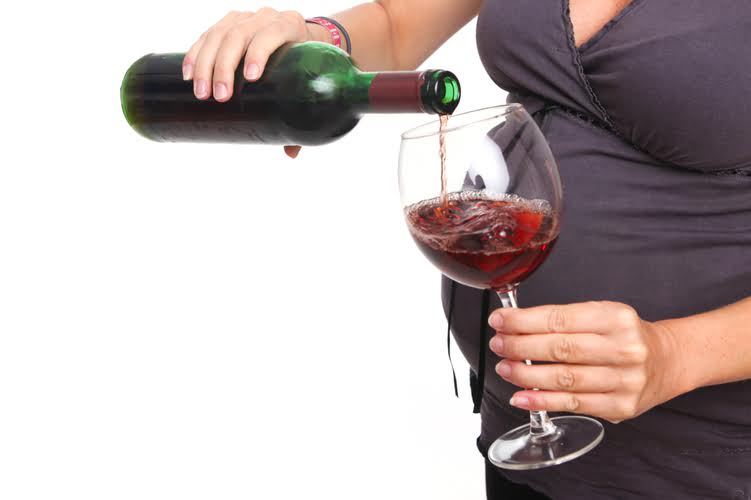The booklet is not intended to cover, in detail, all the various aspects of alcoholism and alcohol abuse but to give you enough information to understand and recognize the problems and know where to go to get assistance. See the Appendix for more detailed information regarding alcoholism. Treating alcoholism https://ecosoberhouse.com/ isn’t easy, and it doesn’t always work the first time around. Often a person has been contemplating abstinence for some time, yet couldn’t get sober on their own. Don’t blame yourself if the first intervention isn’t successful. The most successful treatment happens when a person wants to change.
Because as long as someone in active addiction has access to money, the motivation to quit just won’t be there. It’s easy to lose sight of yourself and your needs when dealing with an addicted loved one. An important way to help your loved one is to take care of yourself. Spending all of your energy worrying about them or trying to fix things for them will go nowhere and negatively impact your physical and mental health.
AUD symptoms
It is possible that self-perceived tolerance might be strongest at younger ages when drinking is escalating but might not be as apparent as individuals maintain and decrease the maximum drinks with advancing age. Space constraints do not allow for an expanded examination of the phenomenon of changes in rates of endorsement of AUD criteria as individuals age, but that question will be revisited in a future paper. A large majority of two generations of SDPS participants whose interviews indicated a current AUD did not characterize themselves as problem drinkers. The authors offer suggestions regarding how to identify those drinkers in need of advice regarding dangers of their behaviors. When someone with a substance use or alcohol use disorder is in denial, it doesn’t mean they can’t see the way they’re using alcohol and drugs. They may instead see the drugs and alcohol as an escape from their problems.
How to talk to an addict depends on where they are in the stages of change. The first stage of change is the pre-contemplation how to help an alcoholic in denial stage; the contemplation stage follows. When you address your loved one’s drinking, use compassion and empathy.
Get help from a professional.
They don’t have to open themselves to judgment or navigate the unknown challenges of treatment. Stigma is one reason people struggle to admit to having a drinking problem. Addiction is commonly viewed as a shameful character flaw, resulting in a fear of social rejection.
It can be painful and scary watching someone you love struggle with alcohol addiction. Unfortunately, it’s not quite as uncommon as some people may think. According to the National Institute on Alcohol Abuse and Alcoholism (NIH), approximately 14.5 million Americans aged 12 or older have alcohol use disorder. Helping someone into a treatment program for alcohol abuse can change the trajectory of his or her entire life.
Don’t become codependent
These examples make it more difficult for your loved one to deny they have a problem. Dealing with a loved one who’s in denial may leave you feeling stressed. When you don’t take good care of yourself, you can’t take good care of your loved one.
- It can be even harder to recognize that in the face of alcoholism, your best efforts just might not be enough.
- Enabling occurs when someone else covers up or makes excuses for the person who has a SUD.
- That’s why many of them won’t admit they have the disease, which is often called alcoholic denial.
- Find out in advance which counselors or facilities accept your family member’s insurance and offer to help them get to any of the locations or meetings.
If you want to get help for your loved one but are not sure where to start, contact the team at Rise in Malibu. Our admissions team can provide information on intervention services, addiction treatment program options, and detoxification services offered at our luxury Malibu California rehab. Usually, by the time the disease has gotten to the crisis point, a person with alcoholism has developed a support system of family and friends who unwittingly enable him to continue in his denial.
Even if this is not the case immediately after confronting a loved one about their addiction, it’s important to express that your support is not going anywhere. They should know they have someone to turn to when they are ready to confront their problem and take action by seeking treatment and recovery. When someone is ready to undergo treatment, it is important that they have support and feel as if people care whether or not they recover. Knowing someone cares about their well-being may be a positive factor in their recovery. In this situation, you may feel like you have exhausted all your options when it comes to trying to help someone with substance abuse disorder—and the reality is that sometimes that may be true.
However, it is crucial to make a referral to the EAP in the case of an employee with a known alcohol problem. Although you are not diagnosing the problem, you are dealing with employee performance and conduct and, possibly, alcohol-related misconduct such as using, possessing, or being under the influence of alcohol at work. Not any one of these signs means that an employee is an alcoholic.
Support
Regression analyses indicated deniers evidenced less intense alcohol and drug-related problems and identified DSM-IV criterion items that they were most likely to deny. People with alcohol use disorder (also called alcohol addiction) face a significant amount of judgment or stigma. That’s why many of them won’t admit they have the disease, which is often called alcoholic denial.
- The idea of your loved one in jail terrifies and disappoints you.
- In addition, some people are suffering from addiction-related brain dysfunction that triggers denial as an involuntary response.
- Ask about new strategies that they learned in treatment or meetings.
- Usually, by the time the disease has gotten to the crisis point, a person with alcoholism has developed a support system of family and friends who unwittingly enable him to continue in his denial.
- Most people who choose to drink alcohol can do so without becoming addicted.
We have spoken to the supervisors of some of the best employees who are alcoholics. Never once has one come back and said they were stunned or shocked. Everyone has been on board with them taking a leave of absence for treatment. Comparisons to others who have lost more than they have is a common justification and manipulation of themselves and others. Many alcoholics feel they do not have a problem because they are still employed.



